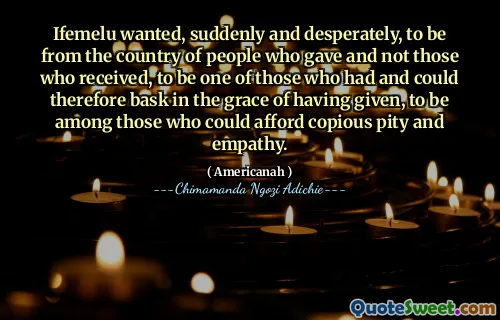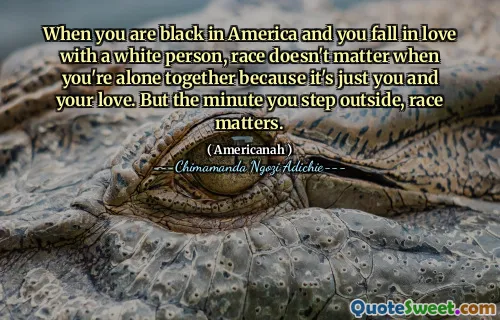
his own will always be seen as different
The quote "his own will always be seen as different" speaks deeply to themes of identity, individuality, and societal perception. It suggests that no matter how much someone aligns with their values, culture, or personal beliefs, they may still be viewed through the lens of otherness by those around them. This notion resonates strongly in contexts of immigration, race, or even personal uniqueness, where an individual's truth is often overshadowed by external labels or stereotypes.
In the context of Chimamanda Ngozi Adichie's Americanah, this quote underscores the experience of navigating identity within both a homeland and a foreign culture. For immigrants, the dual struggle involves maintaining one's authentic self while confronting the pressure to assimilate or to fit into mainstream societal norms. No matter how much "his own" tries to be recognized or accepted, the persistent perception of difference can create feelings of isolation or alienation.
More broadly, this line also captures the universal human experience of being seen as "other," despite sincere efforts to belong. It highlights the tension between personal identity and societal expectation—even when one’s actions or beliefs are genuine, the world may view them differently due to inherent biases or misunderstandings.
Thus, the quote invites reflection on empathy and acceptance. It challenges us to recognize and validate the experiences of those deemed as "different," pushing us to look beyond surface labels and appreciate the substantive humanity beneath. It is a call to honor individuality and reject the limiting judgments that keep us divided.











